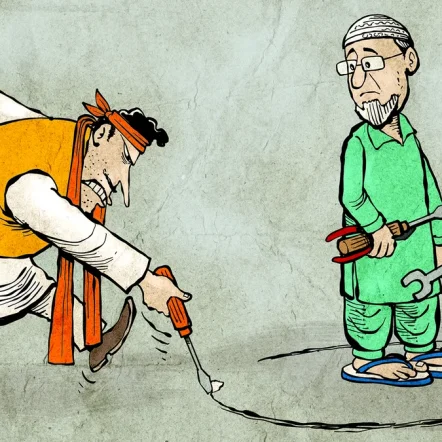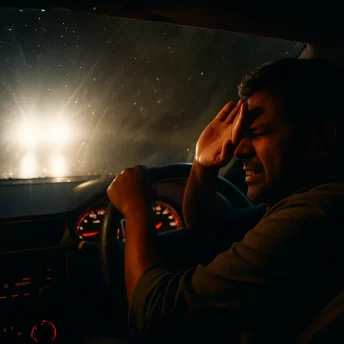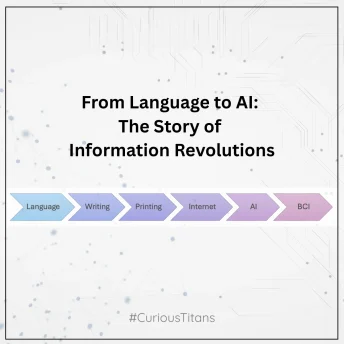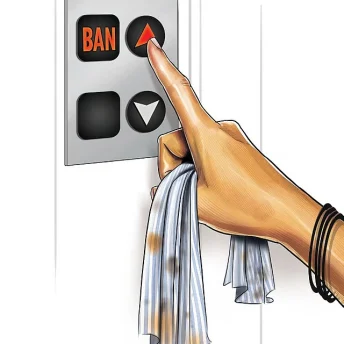Standing Against Religious Intolerance: A Personal Experience
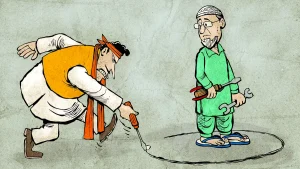
In 2022, we received a lead to develop an app for an NGO that aimed to create a community marketplace. As always, we provided an estimate and, because it was for an NGO, offered the most competitive rate. The request for this app came from an acquaintance, and everything seemed straightforward.
However, just before we were set to start, we received an unusual and disturbing request. The client requested that only one community* should work on the project, as the NGO’s stakeholders wouldn’t approve other communities. It dint take us long to understand the larger picture. This app was a platform for a single community to exclusively buy products and services from fellow members of the community. Businesses were onboarded manually, requiring approval, a clear indication of a larger agenda: the economic boycott of other communities.
We politely declined the project. Our company doesn’t discriminate based on religion or beliefs; what matters to us is the contribution and effort each team member brings. It felt good to say no, knowing we stayed true to our values. But a bitter truth remained: someone else would build that app, and they did. The client later informed us that another agency, aligned with their discriminatory ideals, had taken on the project. This incident hit close to home. It revealed how the hatred we once thought distant was inching closer to our own circles.
Economic boycotts and discriminatory policies targeting minorities
The memory of that project resurfaced recently with the UP local body asking street vendors to display their full names, which clearly highlighted caste and religious identity, on their shops along the route of Kanwar Yatra. No matter the justification offered, the intent was clear—the economic marginalization of minority communities.
In a country where caste and class discrimination are still rampant, and where many won’t hire domestic workers based on religion or caste, institutionalizing religious or caste-based discrimination is a gross violation of the fundamental principles of the Indian Constitution.
After 75 Years of independence, are we progressing?
I am reminded of a 1950 petition filed in the Supreme Court, in the year the court was established. In Jalalabad, Muzaffarnagar, a local law was announced restricting vegetable selling to designated individuals with licenses, an attempt by a few to monopolize the trade. A vegetable vendor, Mohd Yaseen, challenged this discriminatory law in the Supreme Court—and won. In the landmark judgment of 1952, the judges ruled in favor of Mohd Yaseen, stating that such a law, requiring licenses and fees, was against the fundamental right to conduct any lawful business. Mohd Yaseen didn’t just fight and win for himself, but for the right of every street vendor to make a living with dignity. Author Rohit De provided a detailed account of this case and its background in his book A People’s Constitution: The Everyday Life of Law in the Indian Republic.
Nearly seventy-five years later, instead of progressing, we seem to be moving backward.
Though the UP government’s recent policy was revoked after a Supreme Court order, similar laws are being proposed elsewhere. Recently, a minister in Haryana promised to implement a law requiring certificates for street vendors, feeding a dangerous competition to appeal to the majority for political gain.
In a country where more than 80% of the working population earns less than ₹10,000 a month, where nearly 50% depend on free food rations, and 95% work in the informal sector, these kinds of laws disproportionately harm the most marginalized. Many of them scrape by selling goods from tiny shops or street carts, barely surviving.
Once, being secular in India was a badge of pride. Today, the term “secular” (or “sickular”) has been twisted into an insult, weaponized on social media and amplified by hate-spewing television anchors.
Standing Against Religious Intolerance: A Personal Experience
Reflecting on the project we were asked to develop, I later saw that it had been launched. The app was promoted by politicians and sitting ministers. I often wonder if we should have done more, should have explicitly told the client why we refused—because we don’t discriminate based on religion, because the very foundation of their idea was wrong. Perhaps we should have said it was against the idea of India, a nation that thrives on its diversity.
The values on which our Constitution was built are under systematic attack, and it’s time for the people of India to stand up and speak out against this growing intolerance.
*Not mentioning names to prevent instigations against specific communities

